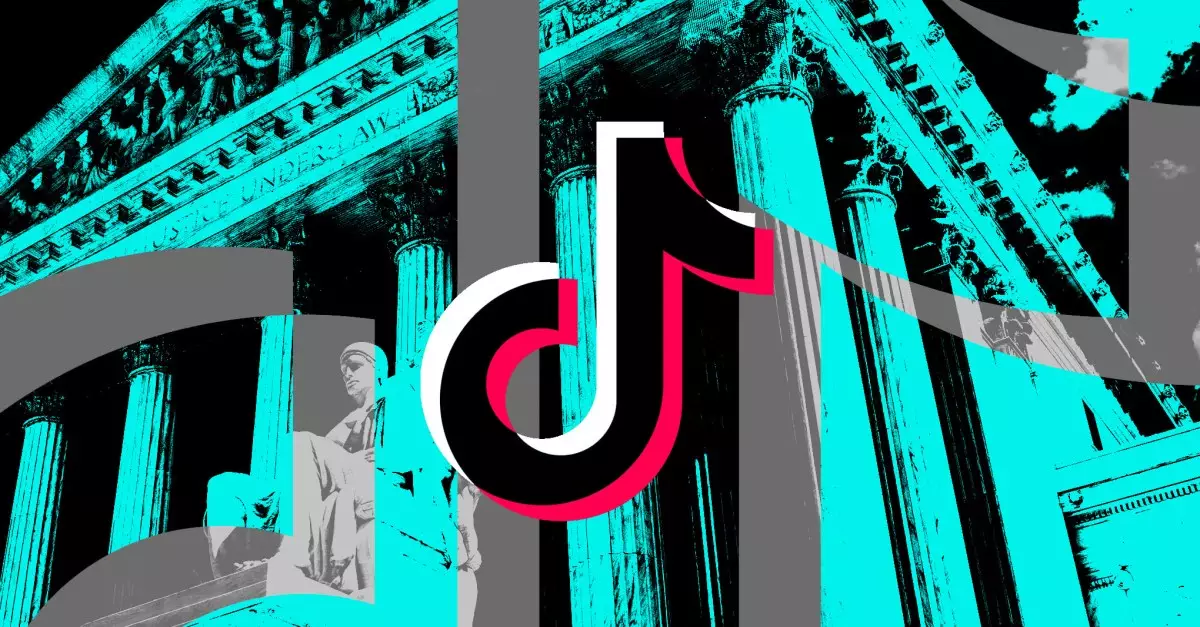The tumultuous narrative surrounding TikTok in the United States is emblematic of a larger ideological battle between technology, commerce, and national security. What should have been a straightforward acquisition process turned into a battleground for political maneuvering, government tariffs, and corporate ambitions. As President Trump’s administration engaged in a volatile trade war with China, TikTok’s future teetered precariously on the edge of governmental decision-making. Questions surrounding user data privacy and national security morphed this social media platform into a symbol of the contentious U.S.-China relations, rendering its acquisition a complex dance of political power plays and self-interest.
In the weeks preceding a decision on TikTok, various companies expressed interest in its acquisition. From the likes of Oracle to Amazon, it seemed that a plethora of American giants were hungry to capitalize on TikTok’s immense popularity and user base. Yet, the whispers of a deal reached a deafening silence under the weight of tariff threats and geopolitical disputes. It became clear that the only serious contender for acquiring TikTok was a consortium led by Oracle. This proposal aimed to create a U.S. entity that would technically detach TikTok from its Chinese parent company, ByteDance.
A Proposal Shot Down by Tariffs
The intricacies of this deal were intoxicating yet fraught with risks. The plan involved licensing TikTok’s algorithm while effectively rolling back ownership stakes from ByteDance to choose a more “American” structure. However, this strategic move was stymied by Trump’s sudden imposition of tariffs that shook the already fragile negotiations. The expectation was that this deal would not just bless TikTok’s continued existence in the U.S. but would also provide a facade of independence to a platform that claims to be working for its users.
But as anyone who has navigated this convoluted saga knows, the landscape can shift at the drop of a hat. The announcement of increased tariffs proved to be a fatal blow to any prospective agreement, as it seemed to exacerbate Chinese hesitance regarding transactions perceived as politically motivated. ByteDance quickly reiterated that any agreement would require the Central Government’s green light, thrusting TikTok’s future right back into the uncertain abyss.
The Unraveling of Certainty
One of the most perplexing aspects of the saga is the seemingly contradictory signals emitted from the White House. Trump projected an air of negotiation and diplomatic intent, even suggesting a possible quid pro quo: relief from tariffs in exchange for a deal on TikTok. Yet reality bore witness to a different story entirely, as the administration’s decisions led to an increasingly tangled web of regulations, proposals, and dashed hopes.
From the perspective of TikTok’s stakeholders—employees, investors, and users—the rising stakes became more than just about a corporate acquisition. It highlighted the insecurities that loom over technology companies caught in the crosshairs of international trade issues. The overarching narrative of security threats posed by TikTok became less about genuine concern and more about political grandstanding, obscuring the real issues at hand: user privacy, data protection, and fairness in tech.
Resilience Amidst the Chaos
Even as chaos reigns, TikTok remains resilient. The platform continues to thrive, driven by its active user base and creative content. Unique features and community engagement keep users coming back, regardless of the looming uncertainty regarding ownership and operational independence. Whether ByteDance retains control or cedes it to a U.S.-led consortium, TikTok’s fundamental draw seems impervious to the bureaucratic tumult surrounding it.
Yet, this unpredictability inflicts a unique pressure on employees and investors. Every tick of the clock brings new speculation, new strategies, and new frustrations. The specter of being yanked away from its roots leaves a cloud of unease. The constant back-and-forth between government regulatory measures and company ambitions underscores a fundamental misalignment in how tech companies operate versus how governments regulate.
The Human Cost of Corporate Drama
As corporate politics continue to abuse TikTok as a bargaining chip, it’s essential to recognize the human cost involved. Employees, creators, and users are not merely collateral in this convoluted game of tariffs and bans; they are the lifeblood of what makes TikTok vibrant. Each gimmicky TikTok trend not only demonstrates the platform’s enduring popularity but also illustrates the creative energy stifled by political and corporate turmoil.
The unfolding drama surrounding TikTok exemplifies the chaotic intersection of technology and policy in a rapidly changing digital landscape. The tug-of-war between potential American ownership and the risks of a government ban has left many questioning the balance between safeguarding national interest and fostering innovation. Ultimately, what should have been a straightforward acquisition has spiraled into a farcical saga of international trade that continues to unfold under the scrutiny of an ever-watchful public.


Leave a Reply